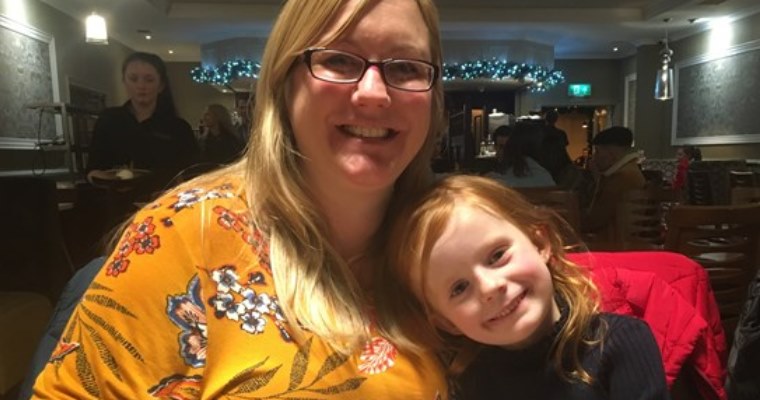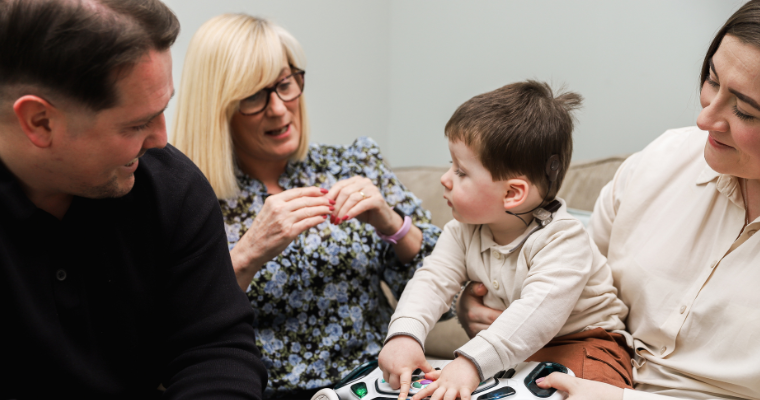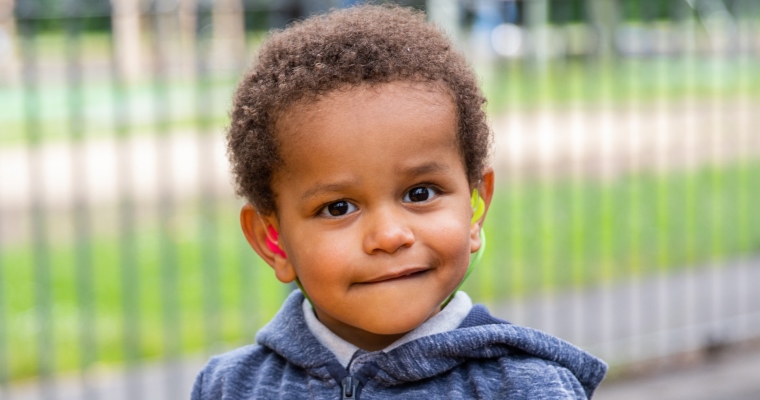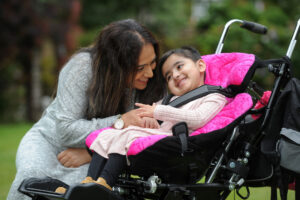
Category: National Deaf Children's Society
Posted on 17.11.2020
Earlier in the year, we wrote about the National Deaf Children’s Society’s support groups, organised by volunteers across the UK, like Sara who runs Sound Friends in County Armagh, Northern Ireland. Sara’s youngest child, six-year-old Charlotte, is profoundly deaf and is aided by a cochlear implant and uses a little sign language. We caught up with Sara to find out how the pandemic has changed their family life and the work of their support group.
“The last few months have been a challenge for us as a family. My husband is a nurse and moved to work in Intensive Care during the initial stages of COVID-19, then he moved back to his normal team in community care. That meant I was at home with our four children, trying to home school while I worked full time as a lecturer for the local FE/HE college. Our lives are usually busy, and even though we weren’t going out, things were as busy as ever.
“We did many new things – PE with Joe Wicks, lots of online learning apps, nature classes in the garden, walking in our local area and family time. We did enjoy the lack of taxi runs and formal activities that so often dictate our day.
“All deaf services and activities from education and health stopped and are only now getting started up again. Some still have no idea when they will resume, such as the Auditory Implant Centre. It meant that as parents we were also having to keep a check on our daughter’s hearing technology, check her understanding of all her school work, ensure she was still learning new vocabulary and manage her speech and language development ourselves. Charlotte requires a lot more repetition of words and concepts than hearing children, often with the addition of sign language or multi-sensory input to help her understand what we are talking about. In a school setting, repetition can often happen naturally, as a teacher builds a topic over a number of classes. However, in lockdown this wasn’t happening and there was a pressure to ensure she didn’t fall behind her peers.
“Another challenge was sound – many organisations decided to hold events on Zoom or similar platforms, but often the sound quality wasn’t good and Charlotte couldn’t follow what was going on, so she lost interest. Captions/subtitles are no use for us yet as she is still very much learning to read, and sign language interpretation is too complex for her yet as she generally uses it as an additional aid rather than as a main communication. The difficulty of being neither fully hearing nor fully signing was a challenge.
“As a support group, Sound Friends have tried to provide support for families and children as best we can, but that has been difficult. All of our planned events and sign language classes had to be suspended due to the government restrictions. We have tried engaging on video calls, but a lot of people don’t want this as they feel over saturated with online activities. However, face-to-face events are still proving too risky for us and so we are trying to come up with novel solutions. At present, we are partnering with a group of health and social care students who are going to design newsletters and resource packs for the families, to contain activities, challenges and physical support information, which will hopefully help us support our members and also gain publicity to reach new families.
“We are hoping to get our sign language classes up and running again soon, but online learning of sign language isn’t ideal, and having students in a classroom is high risk, so we are researching various avenues at present.”
Sound Friends can be found on Facebook @soundfriends and Twitter @sound_friends.
The work of the four Childlife charities is needed now more than ever. Thank you for your continuing support. See here for more stories about member charity, the National Deaf Children’s Society.



